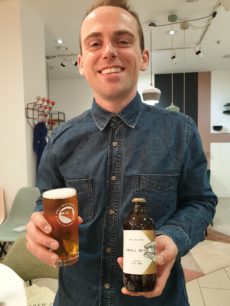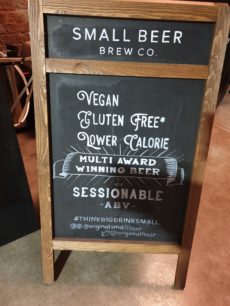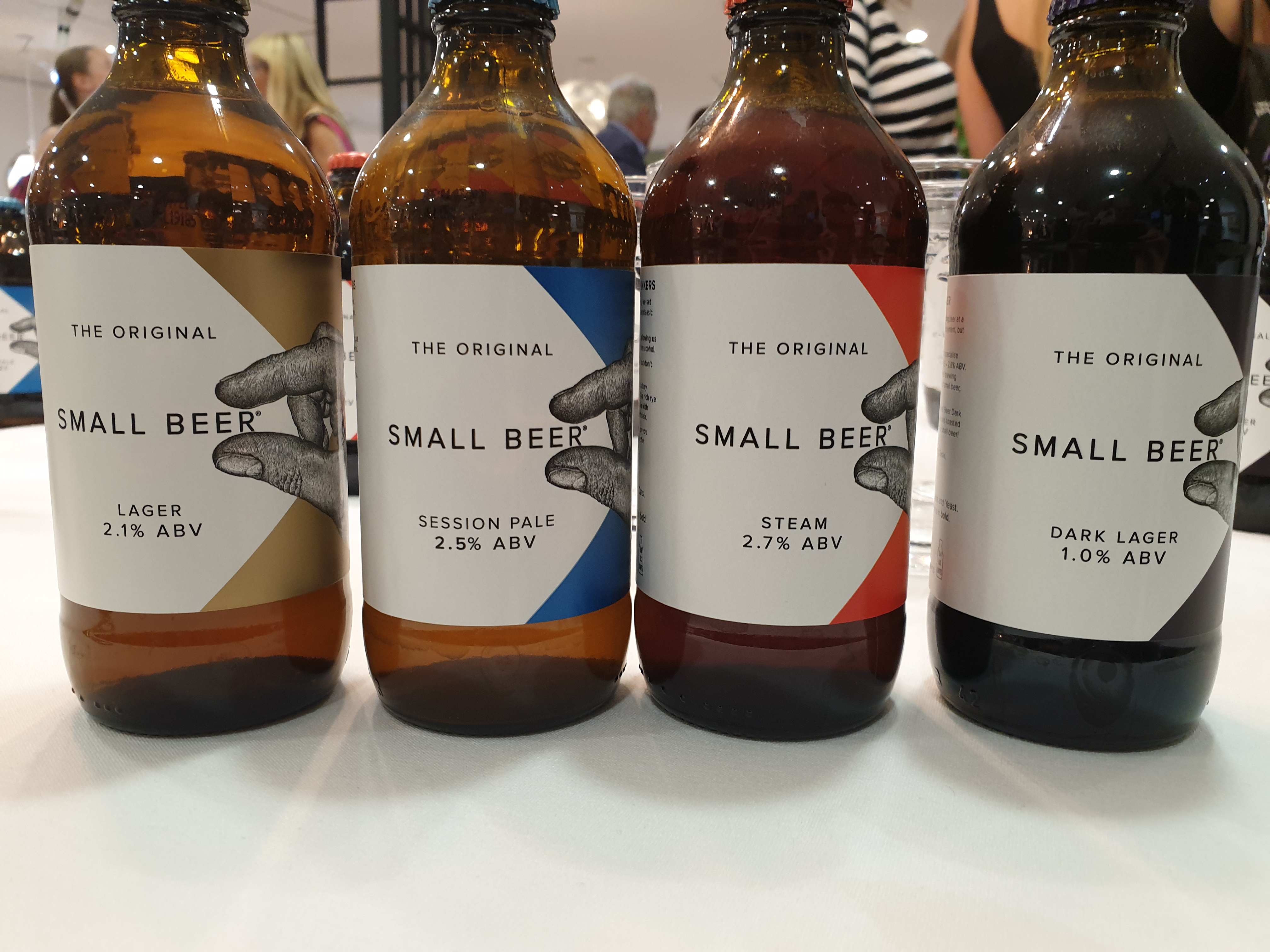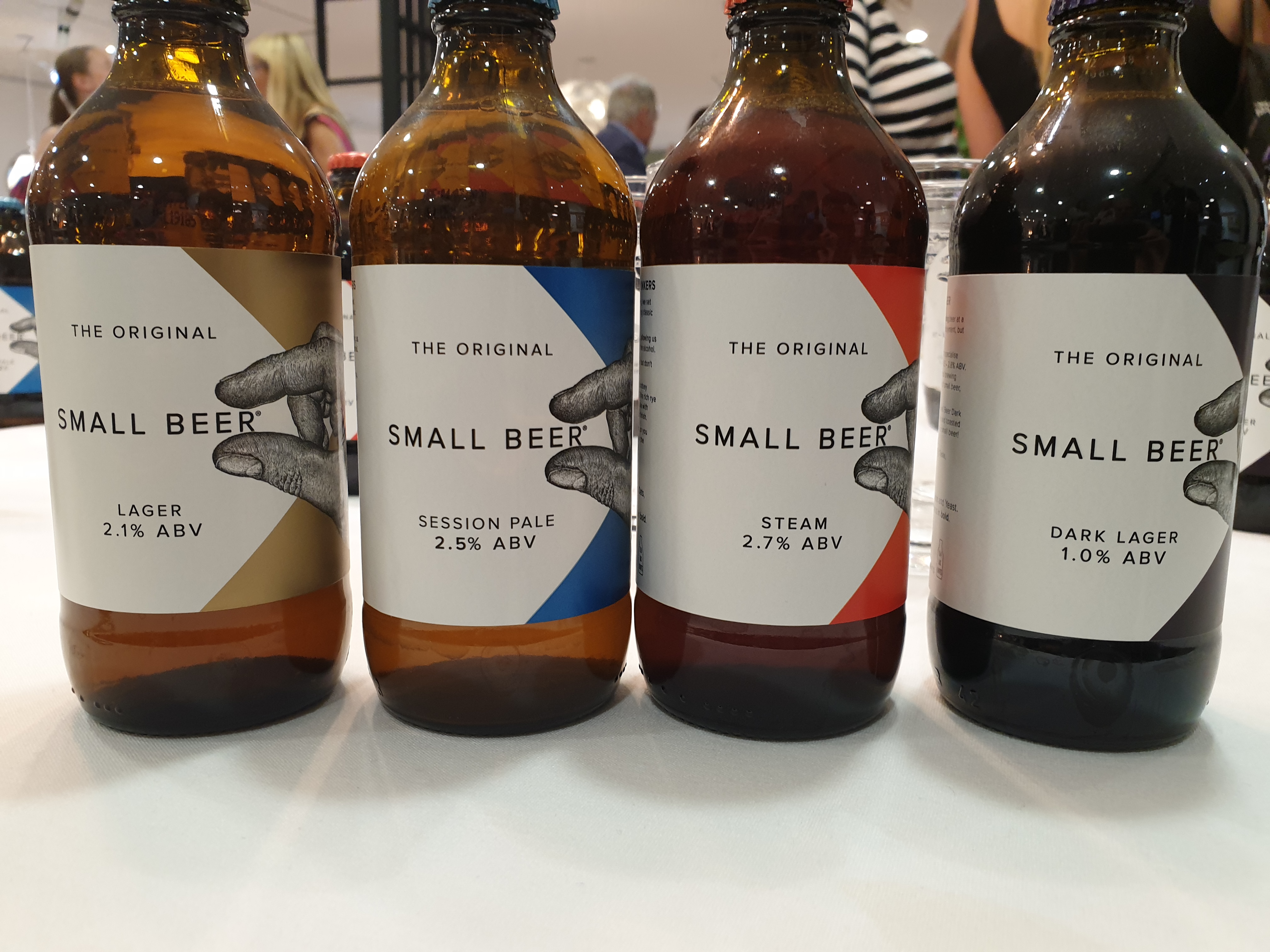Small beer with a big heart!
The ‘no and low’ beer, wine and spirits category is growing. Expectant mothers and motorists, the health conscious and ‘lifestyle consumers’ in search of lighter styles with fewer calories and lower alcohol have more choice than ever before. It’s a phenomenon that’s hard to ignore. Small is big!
What do low and no alcohol mean?
Out of all alcoholic drinks, beer has undoubtedly been the most successful at reducing ABV. However, there is still confusion in the UK over the terminology used. In the US and most of Europe, ‘alcohol-free’ means a maximum of 0.5% ABV, but in the UK, the legal limit is 0.05%. A ‘Low alcohol’ label in this country then refers to drinks between 0.5% and 1.2% ABV.
Germany has arguably been at the forefront of producing high quality low and no alcohol beer. For a brief snapshot, take a look at this exclusive report for Ryebeck. However, the UK is starting to produce a range to rival the best.
Small Beer
Back in the 1700s, weaker beer of between 0.5% and 2.8% ABV became a viable substitute for unsafe and unpalatable drinking water. Being below the diuretic limit of 3% meant that small beer provided both hydration and nutrition, as well as tasting much better than water! Therefore, people used to brew small beer at home. It was never made in breweries. Improved sanitation meant that small beer eventually fell out of favour, but is it on the way back?
One British company inspired by tradition, that is leading the way in creating delicious, flavourful, low ABV beers is Bermondsey-based Small Beer Brew Co.. Founded in 2017 by Felix James and James Grundy, Small Beer Brew Co. only produces beers of between 0.5% and 2.8% ABV. This makes them the world’s first small beer brewery!
Origins of Small Beer Brew Co.
Felix and James originally met while working for Sipsmith. Felix had already been brewing beer for 14 years with Budweiser and Fullers and also as a home-brewer. James was working in wine and spirits and both shared a love of beer.
“We were going to pubs at the time, living fast-paced lifestyles“, explains Felix “and both had young families. We would go into pubs, wanting to have a nice beer, but constantly feeling frustration. The very best tasting beers in the craft beer market were 5% or 6% and above. We wanted a great tasting beer that didn’t knock us for six! We didn’t set out [to create] a business and then think what could we do, where is there a gap in the market and what’s doing well at the moment. So the whole concept was born out of wanting to make a beer that we could drink ourselves … It’s all about being able to give consumers the options that we were looking for when we first came up with the concept.”

Felix James
A new category of beer
The company currently makes four beers. Apart from the dark lager, which is 1% ABV, the other three are 2.1% (Lager), 2.5% (Session Pale) and 2.7% (Steam). “We don’t really consider ourselves as part of low and no“, says Felix. “Effectively we’re defining a new category – small beer.”
No compromise
With a strong commitment to quality and flavour, they source the best ingredients they can. These include high quality floor-malted barley from renowned specialists Warminster Maltings, together with traditional Saaz hops and US hops for zestier flavours. Having designed a bespoke brewing kit exclusively for the production of their small beer, they mix traditional techniques with new technology. The result is small beer with a big heart!
“We want to make our small beer as flavoursome and as full-bodied as we possibly can“, stresses Felix. “We’re looking to achieve that same mouthfeel and body that you would get from a bigger beer.”
Brewing kit
Felix designed the brewing kit specifically to brew small beer. “We opt for flavour efficiency throughout the brewing process. The brew kit is flexible and allows us lots of ability to get as much flavour from the raw materials as possible, rather than alcoholic strength. It hasn’t been designed in a traditional brewing set-up and we use multi-purpose vessels.”
Pure brewing process
The company does not ferment with a low attenuation yeast or strip back the alcohol post-fermentation. They use a good quality lager yeast. “We knew that technically it was feasible to get to where we wanted to be through good brewing techniques … We just use simple, pure brewing methods. We’re not messing around with the process. We’re simply using the pH, the temperature, the thickness of the mash and the brewing kit that I designed to achieve what we need from the beer. That’s full body, full flavour and a slightly lower level of alcohol.”
The beers are all made without forced carbonation, filtration, pasteurisation or clarification. “It’s effectively tank beer in bottles“, says Felix. All the beers are suitable for vegetarians and vegans. Additionally and unusually, the lager is entirely naturally gluten-free, as enzymes do not need to be added to break down the gluten.
Sustainability
Sustainability is a key part of the brewery’s ethos. “We take sustainability very seriously. We always look at the full life cycle approach for everything that we do. All of our materials, whether that’s our boxes, the labels on the bottles, or our business cards – everything is 100% recycled and 100% recyclable.”
Reducing water usage
They operate sustainable brewing methods, using just 1½ pints of water to produce a pint of beer, instead of the usual 8-10 pints. “Part of the reason that we were so keen to design our own kit was specifically to focus on reducing water usage. The brewery is entirely dry floor. We don’t use water to wash down lots of solids which is typically the case in breweries. We do use water to cool our wort, but only exactly as much as we need for the next brew. After that, we use a glycol chiller. The hot air that it generates heats the brewery and the electrical energy that runs the chiller is 100% renewable. All of the energy that we use at the brewery is from wind, water and solar.”

Some benefits of drinking Small Beer!
Unexpected benefits!
The benefits of this approach don’t end there, as Felix adds. “Of the water that’s wasted – half a pint per pint of beer produced – most of that ends up in the spent grain. All of our spent grain goes to a local farm. The farmer has told me that his herd of Dexter cattle drink less from their water trough when they eat our spent grain than when they’re eating dry foods! So even the water that goes to waste isn’t really going to waste as it’s hydrating some cattle!” So happy cows as well as happy beer drinkers!
Where to buy Small Beer
Small Beer Brew Co. beers can be found at Majestic nationwide, Wholefoods and will soon be in Ocado too. All the beers are in bottle, while only the Session Pale is currently available in cans.
Their beers can be enjoyed on draught in pubs, bars, high-end restaurants and hotels, mainly in London but also around the country. They are also available in cultural destinations, including the Royal Festival Hall and National Theatre. As Felix describes, these are places “where you want to go and enjoy a beer before the show and not fall asleep during the performance!”
Events
Small Beer Brew Co. has a large site which doubles up as an events venue which can accommodate up to 200 people. There, they host a variety of events, such as live music, comedy and yoga classes. Additionally, the brewery is available to hire as a venue for corporate days and private events, including weddings and other celebrations.
Ryebeck can provide fermenters and other vessels for all your brewing needs. If interested, feel free to call their helpful team on +44 (0) 800 689 3216 or contact them via the online form.
Author: Robin Goldsmith of The Write Taste.






